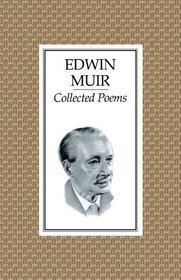I was initially drawn to Muir's poetry for its interest in theological questions, as well as due to the high praise from T.S. Eliot. In reading this collection of Muir's poetry from throughout his career, I found a special affinity for Muir's careful attention to history and the passage of time. I found a tension in the poetry, one that seemed to honor the place of history and historical figures, even as Muir recognized the limitations of the people of history. Muir appreciates the vital role that history plays in our lives,but in a way that is, well, aware. I leave off with a few lines on history I especially liked:
"I take my journey back to seek my kindred,
Old founts dried up whose rivers run far on
Through you and me."
--The Journey Back
"It was not hard to still the ancestral voices:
A careless thought, less than a thought could do it.
And the old garrulous ghosts died easily,
The friendly and unfriendly, and are not missed
That once were such proud masters. In this air
Our thoughts are deeds; we dare do all we think,
Since there’s no one to check us, here or elsewhere.
All round us stretches nothing; we move through nothing,
Nothing but nothing world without end. We are
Self-guided, self-impelled, and self-sustained,
Archer and bow and burning arrow sped
On its wild flight through nothing to tumble down
At last on nothing, our home and cure for all."
--The Usurpers
"Past odds and ends sustain us. We can suck
Courage from buried bravery’s dear downfall,
Learn from forgotten fools to chance our luck
And cut our losses, piously recall
Those who believed and did not understand,
And built in faith and folly in this ancient land."
--Sonnet

